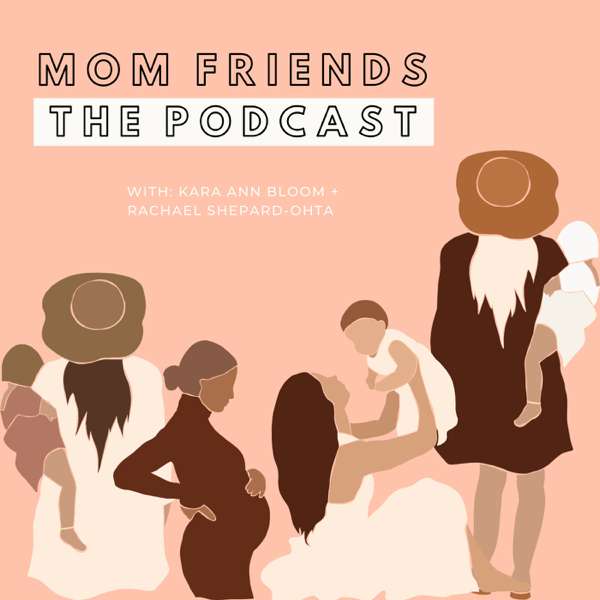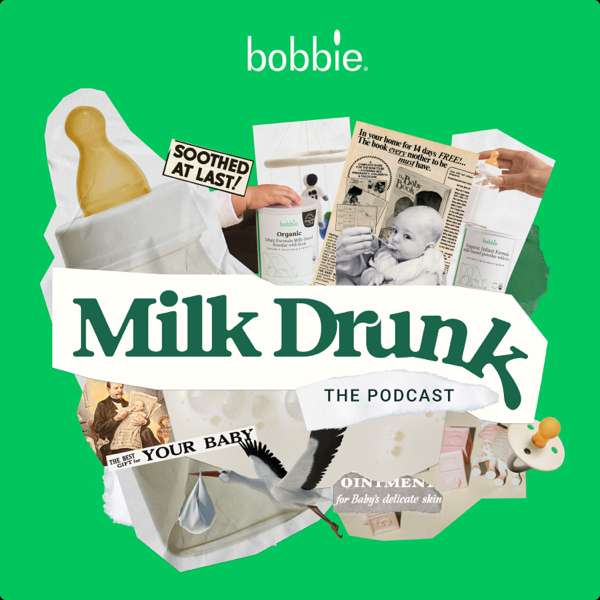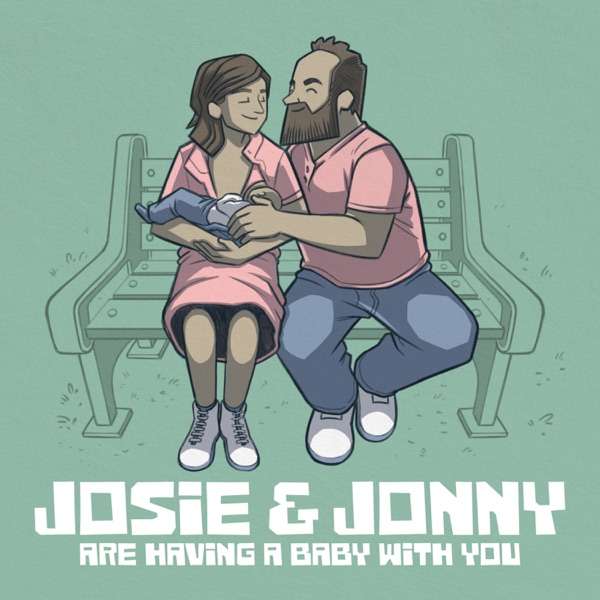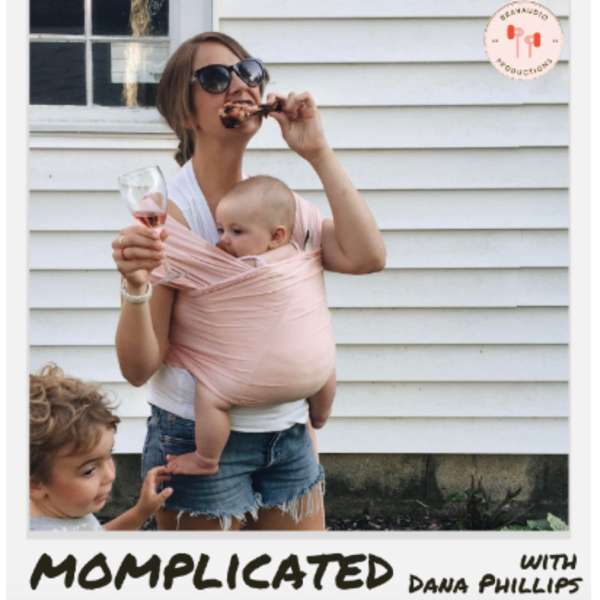The Dad’s Perspective: A Son with a Rare Genetic Disease
So there is this rock star in the podcast world, and her name is Effie Parks. She hosts a podcast called Once Upon a Gene, inspired by her son who has a rare genetic disease. Effie really focuses on the idea that disability is diversity, and that is an idea I try to put into practice professionally as well as personally. Today, we are going to hear from Effie’s husband. If you haven’t yet, check out Effie’s story. Then head back here to listen to Casey, Ford’s amazing dad.
In this episode, we talk about…
[1:57] What it’s like to be married to Effie Parks
Casey has nothing but positive things to say about his wife. She is effervescent, she is funny, and she can connect with anyone. When they discovered their son Ford’s rare genetic disease, Effie had a new focus. Casey has really enjoyed watching her journey from a hair stylist to a podcaster and public speaker. Effie is so inspiring, and Casey is incredibly proud of her.
[4:59] Learning about their son’s differences
Casey thinks he and Effie had very different experiences during this time in their lives. He describes his response as having “blinders on” when they started noticing some differences with Ford. He has an optimistic streak, and he convinced himself that everything was going to be fine.
At four months old, Ford was diagnosed with failure to thrive and they gave him a feeding tube. Casey thought he would put on a few pounds and hit his milestones. A doctor told Effie that Ford had microcephaly, and a nurse made some offhand comments in that appointment that scared her. Casey wanted to get another opinion. He had his blinders on, and Effie was experiencing the flip side. Even though she is all about finding the joy and happiness in life, at that point she was seeing the dark things in what they were saying.
[8:53] Coping with learning about Ford’s disability
While it, admittedly, wasn’t the healthiest coping strategy, Casey focused on work. He asked the doctors about the long-term effects of Ford’s condition and the chance that they were wrong. Casey was not convinced there were going to be long-term issues, until Ford was diagnosed with CTNNB1 at 16 months old. CTNNB1 is the deletion of a gene that prevents him from creating beta-catenin, a type of protein. It has resulted in global disabilities. Ford cannot sit up on his own, he does not walk, and he does not talk.
Once they gave Ford this diagnosis, the doctors shared with Casey and Effie the singular study they had on CTNNB1 syndrome. There were around 32 known patients in the world, and they weren’t able to get a lot of information about it. Knowing that, Casey decided to see how Ford developed. Somewhere along the way, he became comfortable with the fact that Ford is Ford. Casey has watched him and has processed the things he is able to do and the things he is not able to do, without focusing on the loss of the things he cannot do.
[12:15] Casey’s favorite parts about being Ford’s dad
First, Ford has an unbelievable laugh. It is such a pure expression of joy. If you check out Effie’s podcast, Once Upon a Gene, his belly laughing is included in every episode. Casey says that the joy in his eyes and face matches his amazing laugh. Tickling is a favorite activity, and seeing other people happy can bring that out in Ford as well.
[16:17] What they want medical care teams to know about Ford’s condition
Casey and Effie need to make sure Ford’s medical team is aware of all the different components of his medical chart. He sees a lot of different specialists and they all have extremely important information that the team as a whole needs to understand. As Ford’s parents, they have to bring all the pieces together and make sure everyone is on the same page.
Sometimes they also have to educate people on the syndrome itself, because there isn’t a lot of information out there about this rare condition. In the beginning, the best source of information Casey and Effie found was a Facebook group for CTNNB1 families. They can bring commonalities they have seen or things that other people have experienced as they have grown older to Ford’s medical providers.
[19:15] Connecting with other parents of children with rare disabilities
Casey shares that he is an introvert, but it’s always wonderful to get to know other families with kids who have CTNNB1. All the kids they have met are older than Ford, so they feel like they have seen into Ford’s future a bit in some ways. Casey has been able to connect with other dads through Effie’s podcast as well as through Facebook.
[21:28] The hardest parts about having a child with a rare genetic condition
For Casey, the hardest thing was the grief and loss he felt for Ford. It was difficult to let go of the things he wanted for Ford and to accept him the way he was. This is something that can be tough for all parents, but it’s extremely difficult and it hurts to learn that your child’s life will not be the way you envisioned it.
While it’s no longer at the forefront of Casey’s mind, it does come up at unexpected moments. Especially now that their two-year old daughter is doing things that Ford cannot do, Casey is noticing the stark contrast. Those moments are the hardest.
In addition, Casey notices that Ford shapes the decisions that he and Effie make in terms of their personal decisions. He has to have a job with excellent healthcare and they have to live in a place that has top-notch medical facilities. Their home has to be accessible for Ford, and they have to be conscious of running errands at a time when someone can be home with Ford. Getting a babysitter is impossible, but they are lucky that Grandma knows Ford’s ins and outs and takes care of him regularly. Those day-to-day life decisions, both big and small, are much more narrow than they otherwise would have been.
[25:13] Casey’s advice for other parents in similar situations
Casey advises others to focus on your child. Don’t focus on the things that your child is not, or the things they or your family don’t have. Focus instead on that you do have, why you love your child, and being present in the life you have. You will never be happy if you focus on the things you can’t have.
[26:34] What Ford has taught Casey about himself
This experience has taught Casey about empathy for those who are different from you. It has opened his eyes to see society and his community in a much broader light. Previously, he saw people with disabilities as more separate from himself. Ford has taught him not only how wrong that mindset is, but also that the disabled community is so much larger than many of us realize. They are not separate; they are a wonderful and important part of our larger community.
[29:28] Casey’s recommended resources
Casey relies on family and close friends for support. His wife Effie’s podcast, Once Upon a Gene, is a great resource for parents or anyone who wants to learn more about disabilities.
Have you heard? The Child Life On Call mobile app for parents, kids and their care team will be available in 2022. Sign up to stay informed here.
Child Life On Call is a community of parents and professionals that share ideas, stories and resources to help YOU navigate your child’s unique experiences. We give you strategies to support yourself and your family through life’s challenges. We are so glad you are here.
Website: childlifepodcast.com
Merch: bonfire.com/store/childlifeoncall
Instagram: instagram.com/childlifeoncall
Facebook: facebook.com/childlifeoncall
Twitter: twitter.com/childlifeoncall
YouTube: https://www.youtube.com/channel/UCnh95T1MOYtbpBxJaZqg7rg

 Our TOPPODCAST Picks
Our TOPPODCAST Picks  Stay Connected
Stay Connected







